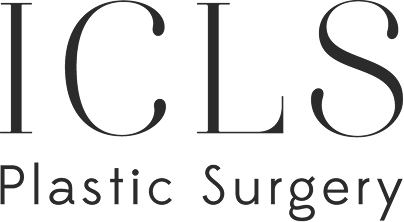
If you’re planning to start a family someday, there’s a lot to consider before welcoming a baby into your life. One common question for women considering breast surgery is whether they’ll be able to breastfeed afterward. The good news is that with modern surgical techniques and thoughtful planning, breastfeeding after breast surgery is often possible. However, it’s important to note that breastfeeding ability can vary from person to person, with or without prior surgery—and may even change from one pregnancy to the next.
At ICLS, we understand how important it is to make informed decisions about any procedure. Whether you’ve already had breast surgery or are considering your options before starting a family, this guide will help you understand what to expect when it comes to breastfeeding. While many women are still able to breastfeed after surgery, it’s worth noting that results can vary. In some cases, future pregnancies and breastfeeding may affect the long-term outcome of your surgical results. For this reason, many patients choose to wait until after they’ve finished having children to pursue breast surgery.
Breastfeeding With Breast Implants
Can you breastfeed after a boob job? In most cases, breast augmentation doesn’t interfere with the ability to breastfeed. In one study, 93% of those who had undergone breast augmentation continued to breastfeed successfully. However, researchers also found that three factors can impact breastfeeding success rates following breast augmentation:
- Surgery type: Techniques that avoid cutting around the areola (such as inframammary incisions under the breast fold) are less likely to damage milk ducts and nerves involved in breastfeeding.
- Implant material and placement: Implants placed under the chest muscle (submuscular) are less likely to interfere with milk production compared to those placed over the muscle. The material itself (saline or silicone) doesn’t affect the milk, but placement can influence function.
- Surgical complications: Issues such as infection, scarring, or nerve damage can affect milk flow or nipple sensation, potentially reducing the body’s ability to produce or release milk.
That’s why choosing an experienced, board-certified plastic surgeon is essential. At ICLS, we commonly use a discreet inframammary incision, placed under the breast fold. This approach avoids the areola, protecting the milk ducts and nerves essential for breastfeeding. Additionally, with submuscular (under‑the‑muscle) implant placement, we further reduce pressure on the breast tissue and milk ducts.
At your initial consultation, be sure to ask: Can you breastfeed with implants? Knowing your goals and desire to breastfeed helps your surgeon design a treatment plan to meet your needs.
Breastfeeding After a Breast Reduction
Can you breastfeed after breast reduction? Breast reduction surgery involves removing some breast tissue and, often, moving the nipple to a higher position. This repositioning can affect the milk ducts, nerves, and glands needed for breastfeeding.
Still, having a breast reduction doesn’t automatically mean you won’t be able to breastfeed. While outcomes vary, research shows that many women are still able to breastfeed after reduction surgery.
With modern techniques and surgical expertise, we can improve outcomes and help protect breastfeeding function. If you’re interested in breast reduction and plan to breastfeed, communicate with your surgeon about your future plans.
Breastfeeding After a Breast Lift
Can you breastfeed after a breast lift? A breast lift (mastopexy) typically involves removing excess skin, adjusting the position of the areolas, and reshaping the breasts. Many women choose mastopexy to reduce sagging and address asymmetry without changing the size of their breasts. The procedure typically maintains nipple sensation and protects the integrity of the ducts. As such, many women report normal breastfeeding ability after a standalone lift or combined lift-augmentation.
As with other types of breast surgery, the technique matters. So, tell your surgeon about your breastfeeding plans. Incisions around the nipple (periareolar) may affect the critical structures involved in lactation if not performed carefully. Keeping the nipple attached to the underlying tissue tends to produce more favourable outcomes.
What Affects Breastfeeding Success After Surgery?
While everyone is different, some common factors affect breastfeeding success rates after surgery, including:
- Surgical technique: Procedures that preserve the milk ducts and nerves tend to have higher success rates. Protecting the fourth intercostal nerve, which controls the let-down reflex, is crucial for achieving better breastfeeding outcomes.
- Incision location: Incisions made under the breast (inframammary) are less likely to impact milk ducts than those around the areola.
- Nipple sensation: Retained sensation in the nipple area is a good sign that key nerves are intact.
- Time since surgery: The body can regenerate and re-route some ducts and nerves over time. So, a longer gap between surgery and pregnancy may increase breastfeeding potential.
- Natural milk supply: Some women have naturally high milk production and have an easier time breastfeeding after breast surgery. Others with no surgical history still need to supplement, and that’s perfectly okay.
Together, these factors play a key role in determining breastfeeding success after surgery, often more so than the surgery itself.
Tips To Boost Breastfeeding Success After Surgery
If you hope to breastfeed after surgery, discuss your plans with your surgeon. This conversation can help guide important decisions about incision placement and surgical technique.
It’s also essential to choose a board-certified plastic surgeon with a deep understanding of how surgical technique can support your future ability to breastfeed. At ICLS, Dr. Khanna uses evidence-based methods that preserve key nerves and ducts during an augmentation or lift.
Lastly, once your baby arrives, working with a lactation consultant can help you get the extra support you need. Specialists can help with positioning, latching, and monitoring milk supply. Frequent breastfeeding or pumping can also help stimulate milk production.
When To Call in a Lactation Consultant
Breastfeeding doesn’t come easily to every mom, even those who haven’t had surgery. Don’t be afraid to consult with a lactation specialist if:
- Your baby isn’t latching well
- You’re experiencing pain or soreness while nursing
- Your milk supply seems consistently low
- Your baby isn’t gaining weight as expected
- You simply want support and encouragement
Finally, pay close attention to your baby’s cues. Signs of successful feeding include consistent weight gain, at least six wet diapers per day, and a generally content baby after nursing. If anything seems off, reach out to your lactation consultant or doctor.
FAQs
Is breastfeeding after breast surgery safe for my baby?
Yes. Implants and previous surgeries do not affect the safety of your breastmilk.
How do I know if my milk supply is enough after surgery?
Watch for signs like steady weight gain, regular wet diapers, and contented feeds. A lactation specialist can also perform a weighted feed to measure intake.
Will breastfeeding change the appearance of my surgical results?
Pregnancy and breastfeeding naturally may cause some natural changes in breast shape. However, many women continue to feel confident in their results. You can also consider revision procedures to address any significant changes.
Can you breastfeed with breast implants?
Yes, many women can successfully breastfeed with breast implants. Success often depends on the incision location and implant placement. Most modern techniques preserve the milk ducts and nerves needed for breastfeeding.
Your Body, Your Baby, Your Confidence
At ICLS, we believe that you shouldn’t have to choose between breastfeeding and body confidence. Our breast surgery procedures match your current and future plans, whether you’re in the early stages of family planning or you’re further along in your parenthood journey.
If you’re considering breast surgery or have questions about breastfeeding after a procedure, we’re here to help. Schedule a personalized consultation to speak with our experienced surgeons and explore your options.
